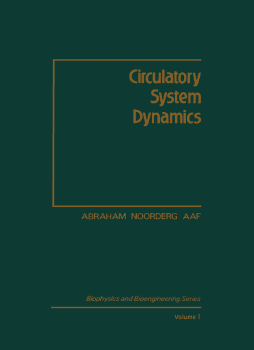
Additional Information
Book Details
Abstract
Circulatory System Dynamics reviews cardiovascular dynamics from the analytical viewpoint and indicates ways in which the accumulated knowledge can be expanded and applied to further enhance understanding of the normal mammalian circulation, to ascertain the nature of difficulties associated with disease, and to test the effect of treatment.
Comprised of 10 chapters, this volume begins with an overview of the circulatory system, including its anatomy and the trigger for myocardial (heart muscle) contraction. The discussion then turns to measurement of blood pressure using invasive and non-invasive techniques; blood flow measurement, with emphasis on cardiac output and measurement in the microcirculation; the system and pulmonary arterial trees; and pulsatile pressure and flow in pulmonary veins. Subsequent chapters explore microcirculation and the anatomy of the microvasculature; the heart and coronary circulation, paying particular attention to the Frank-Starling mechanism and indices of myocardial "contractility"; and control of blood pressure, peripheral resistance, and cerebral flow. The last two chapters deal with circulatory assistance and the closed cardiovascular system.
This book will be of interest to students, practitioners, and researchers in fields ranging from physiology and biology to biochemistry and biophysics.
